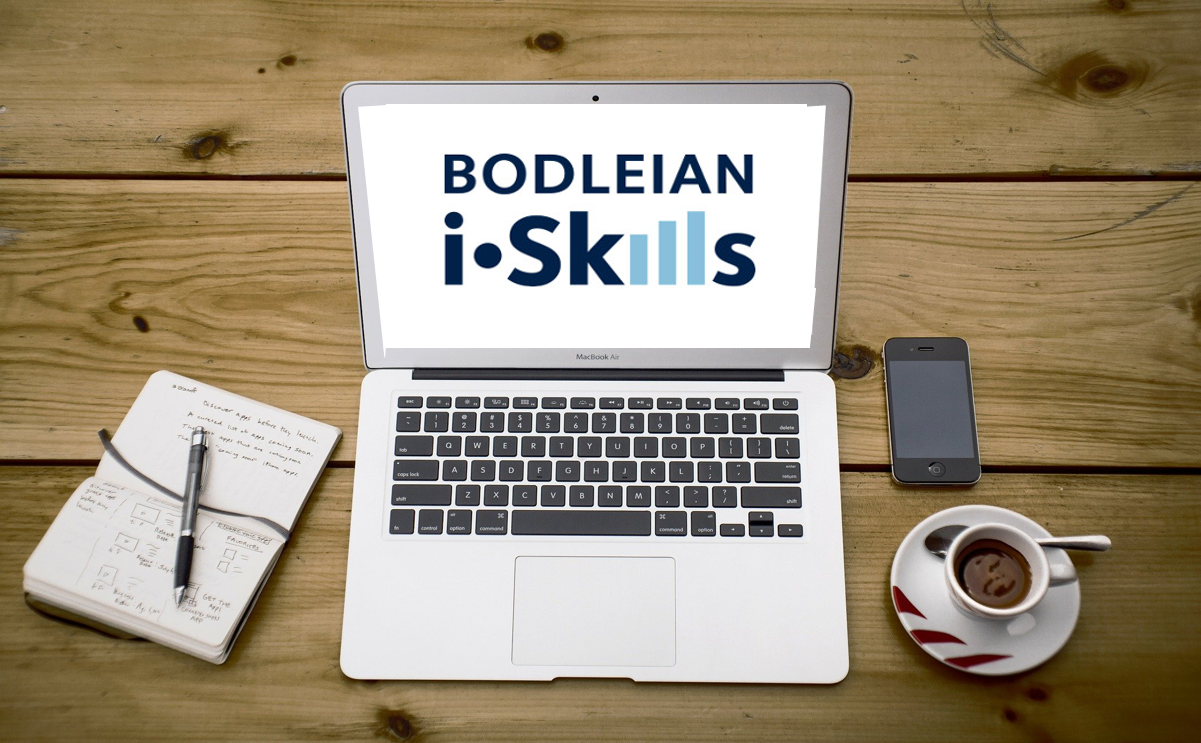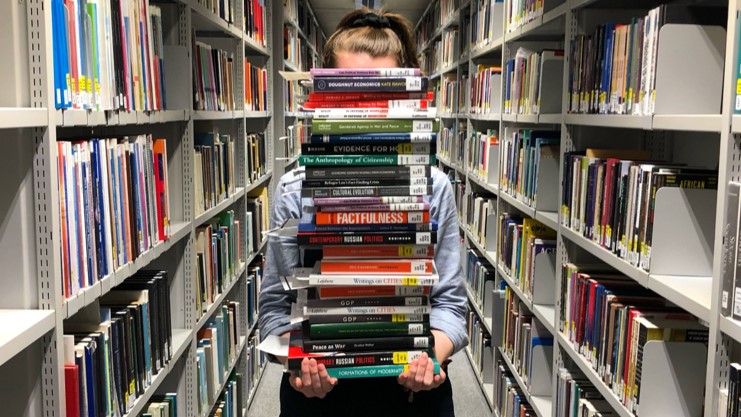 Bodleian iSkills workshops aim to develop your skills in information discovery and scholarly communications, covering a variety of resources across a wide range of disciplines. They are primarily aimed at University of Oxford students and staff. Some workshops take place face-to-face, whilst others are run online.
Bodleian iSkills workshops aim to develop your skills in information discovery and scholarly communications, covering a variety of resources across a wide range of disciplines. They are primarily aimed at University of Oxford students and staff. Some workshops take place face-to-face, whilst others are run online.
The workshops are FREE but online booking is essential. A list of the sessions taking place this term can be found on the iSkills Workshops webpage.

Workshops taking place in 7th Week:
Research metrics and citation analysis tools: Part 1 what makes a journal a “top” journal? (Tues 6th June, 11:00-12:30)
In this session we will cover how to locate and interpret journal level metrics such as the Journal Impact Factor (JIF). We will examine the tools you can use to locate journal level metrics, such as Journal Citation Reports and Scopus Sources. We will also consider the uses, limitations and pitfalls inherent in these metrics and how they can be used responsibly. By the end of the session you will be familiar with: the main journal metrics; using Journal Citation Reports and CiteScore Journal Metrics to find journal impact factors; using Essential Science Indicators to find top research by articles, authors, institutions, countries and journals; and the issues and recommendations for using citation analysis to measure impact.
Who is this session for? Postgraduate students, researchers, academics, research support staff.
Format: Classroom-based (Social Science Library).
Archives and modern papers for Social Sciences and History (Tues 6th June, 11:00-12:30)
The Bodleian Libraries Weston Library has a wealth of resources covering almost all aspects of modern British society and culture. This session will introduce key finding aids and get you started with the research skills needed to make the most of these resources. Subjects to be covered include: identifying relevant material in Oxford and elsewhere; considerations when working with archival material; types of archives and modern papers; and how to find out more.
Who is this session for? Students, researchers and other Bodleian Libraries readers.
Format: Classroom-based (Weston Library).
Sources for U.S. History (Tues 6th June, 14:00-15:30)
An online introduction to primary sources for the study of American history, from the colonial period to the 20th century. The session will provide an overview of the different kinds of information sources (early printed books, newspapers, databases and official records), and guidance on locating material for research. Collections highlighted include physical materials available in Oxford, Bodleian databases and other online resources.
Who is this session for? Students, researchers, and anyone else interested in the subject.
Format: Online using Microsoft Teams.
Working with sensitive research data (Weds 7th June, 10:00-12:00)
A workshop outlining some of the key principles to bear in mind when working with sensitive or restricted research, whether collected yourself or obtained from a third-party source such as an NHS trust or Biobank data. Issues of confidentiality, informed consent, cybersecurity and data management will be covered. Examples of scenarios or concerns drawn from the research of participants are particularly welcome. The role of support services at Oxford will also be outlined and in particular the role of the Bodleian Data Librarian who will lead the session. Follow up consultations with the Data librarian or other subject consultants are also offered.
Who is this session for? All DPhil students and research staff in the Sciences and Medical Sciences.
Format: Classroom-based (Social Science Library).
Open Scholarship: Playing in the open: Getting familiar with Creative Commons licences (Weds 7th June, 14:00-15:30)
Create content for your teaching or research with greater confidence by attending our session on Creative Commons (CC) licences. Learn how they work, how they interact with copyright and how to use them to best effect. The session will make special reference to images but is applicable to all media, including written works. The workshop is classroom-based. In this playful, interactive face-to-face session we will cover: what Creative Commons Licences are; where to find Creative Commons material; how to apply Creative Commons to your own work; how to reuse Creative Commons materials; and we’ll finish the session with a Creative Commons card game.
Who is this session for? Anyone interested in using and sharing Creative Commons/Open Access materials.
Format: Classroom-based (Clarendon Building).
Keeping up to date with research (Weds 7th June, 14:00-15:30)
An online introduction to using alerts to keep up to date with new research and save you time. A combination of presenter-led instruction and the opportunity for participants to set up email alerts to receive notifications for publications in their field of research. The workshop will cover: how email alerts can help you; setting up alerts on your favourite databases and other platforms for new content in your field; and managing your alerts.
Who is this session for? Postgraduates, researchers, academics and anyone interested in the topic.
Format: Online using Microsoft Teams.
Explore Virtual Reality and 3D Printing (Thurs 8th June, 17:00-18:30)
Did you know that the Radcliffe Science Library offers a 3D printing service and lends virtual reality (VR) headsets? This session will introduce you to the exciting possibilities offered by these technologies for studying and research. By the end of the session you will: know how to access the library’s 3D printing and VR lending services; understand some of the scientific applications that VR and 3D printing has been put to in Oxford; and be aware of some of the resources you can use to develop your own 3D printing designs and VR projects. The session will include demonstrations of the library owned VR headsets and there will be the opportunity to try a headset for yourself.
Who is this session for? Any undergraduate student in the sciences.
Format: Classroom-based (Social Science Library).




